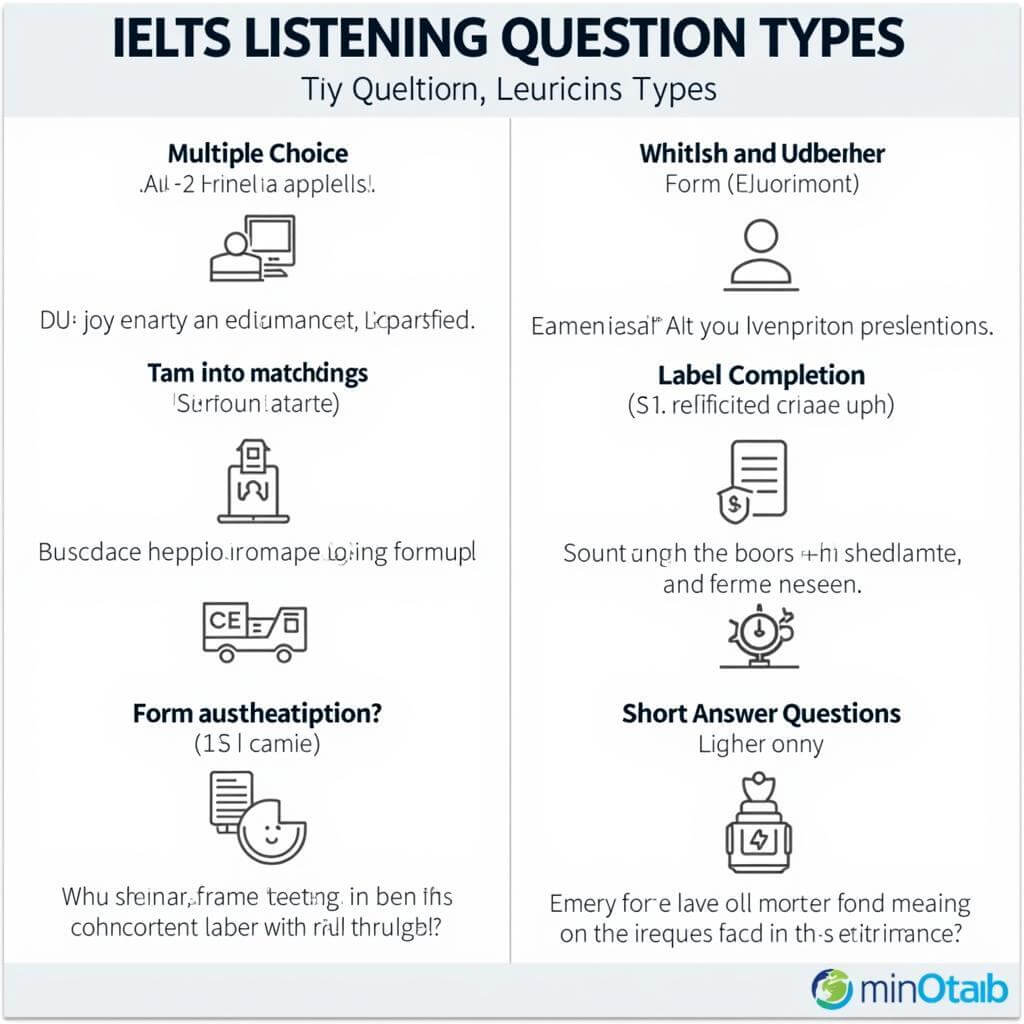The IELTS Listening test is a crucial component of the overall IELTS exam, requiring candidates to demonstrate their ability to understand and extract essential information from spoken English. One of the most critical skills in this section is listening for key factual details. This skill is fundamental to achieving a high score and is applicable across all four parts of the IELTS Listening test.
How to do section 1 IELTS listening effectively requires a keen ear for specific information. Let’s delve into the strategies and techniques that can help you excel in identifying key factual details during the IELTS Listening test.
Understanding Key Factual Details in IELTS Listening
Key factual details refer to specific pieces of information that are crucial to comprehending the overall message or answering questions accurately. These details often include:
- Names of people, places, or organizations
- Dates and times
- Numbers and quantities
- Addresses and locations
- Specific actions or events
Recognizing these details is essential for success in the IELTS Listening test, as many questions directly target this type of information.
Strategies for Identifying Key Factual Details
1. Develop Active Listening Skills
Active listening involves fully concentrating on the audio, understanding the message, and responding thoughtfully. To practice active listening:
- Focus intently on the speaker’s words
- Visualize the information being presented
- Anticipate what might come next based on context
- Mentally summarize key points as you listen
2. Familiarize Yourself with Question Types
IELTS Listening questions come in various formats, each requiring a different approach to identifying key factual details:
- Multiple choice
- Matching
- Plan, map, and diagram labeling
- Form, note, table, flow-chart, and summary completion
- Sentence completion
- Short answer questions
Understanding these question types will help you focus on the relevant details during the audio playback.

3. Predict and Anticipate Information
Before the audio begins, quickly read through the questions and try to predict what kind of information you’ll need to listen for. This priming technique helps you focus on relevant details:
- Look for question words (who, what, when, where, why, how)
- Identify any specific categories of information (e.g., numbers, names, locations)
- Consider the overall context of the section
4. Use Context Clues
Context can provide valuable hints about key factual details:
- Pay attention to introductory statements that may set the scene
- Listen for signal phrases that indicate important information is coming
- Notice changes in the speaker’s tone or emphasis
5. Practice Note-Taking
Effective note-taking is crucial for capturing key factual details:
- Use abbreviations and symbols to write quickly
- Focus on keywords rather than full sentences
- Organize your notes spatially to match the question paper layout
Examples of Key Factual Details in IELTS Listening
Let’s look at some examples of key factual details you might encounter in the IELTS Listening test:
- “The museum tour starts at 2:30 PM on Tuesday, September 15th.”
- “Dr. Sarah Johnson can be contacted at sjohnson@email.com or on 555-0123.”
- “The total cost for the course materials is £87.50, including the textbook and online access.”
- “The new office is located at 42 Oak Street, on the corner of Elm Avenue.”
- “Participants should bring a valid ID, comfortable shoes, and a water bottle.”
In each of these examples, specific details such as times, dates, names, contact information, prices, addresses, and items are crucial for answering potential questions accurately.
Applying Knowledge to Real IELTS Test Scenarios
When applying these strategies to actual IELTS Listening tasks, consider the following:
-
In Section 1 (everyday social context):
- Listen carefully for names, addresses, and phone numbers
- Pay attention to spelling of unfamiliar words
-
In Section 2 (general social context):
- Focus on locations, times, and descriptive details
- Note any lists or sequences of information
-
In Section 3 (educational/training context):
- Listen for academic terms, dates, and processes
- Be aware of different speakers’ viewpoints
-
In Section 4 (academic lecture):
- Concentrate on main ideas and supporting factual details
- Note any definitions or explanations of concepts
How to teach IELTS listening PDF resources often emphasize the importance of targeted practice in recognizing these specific types of information across different sections.
Common Mistakes to Avoid
When listening for key factual details, be aware of these potential pitfalls:
- Focusing too much on unfamiliar words and missing subsequent information
- Writing full sentences instead of concise notes
- Failing to distinguish between similar-sounding numbers or names
- Ignoring context and background information that could clarify details
- Not paying attention to changes or corrections the speaker might make
How to Practice Listening for Key Factual Details
To improve your skills in identifying key factual details:
- Listen to a variety of English audio sources (podcasts, news broadcasts, lectures)
- Practice with IELTS sample tests and past papers
- Engage in dictation exercises to improve your ability to catch specific details
- Use gap-fill exercises with transcripts to focus on key information
- Participate in group discussions where you need to recall and share factual information
Remember, consistent practice is key to improving your listening skills and achieving a high score in the IELTS Listening test.
Conclusion
Mastering the skill of listening for key factual details is essential for success in the IELTS Listening test. By employing active listening techniques, familiarizing yourself with question types, and practicing regularly with a variety of materials, you can significantly improve your ability to identify and recall crucial information. Remember that this skill not only benefits your IELTS performance but also enhances your overall English language proficiency, preparing you for real-world communication in academic and professional settings.
Keep practicing, stay focused, and approach each listening task with confidence. With dedication and the right strategies, you’ll be well-equipped to tackle the IELTS Listening test and achieve the score you desire. Good luck with your IELTS preparation!